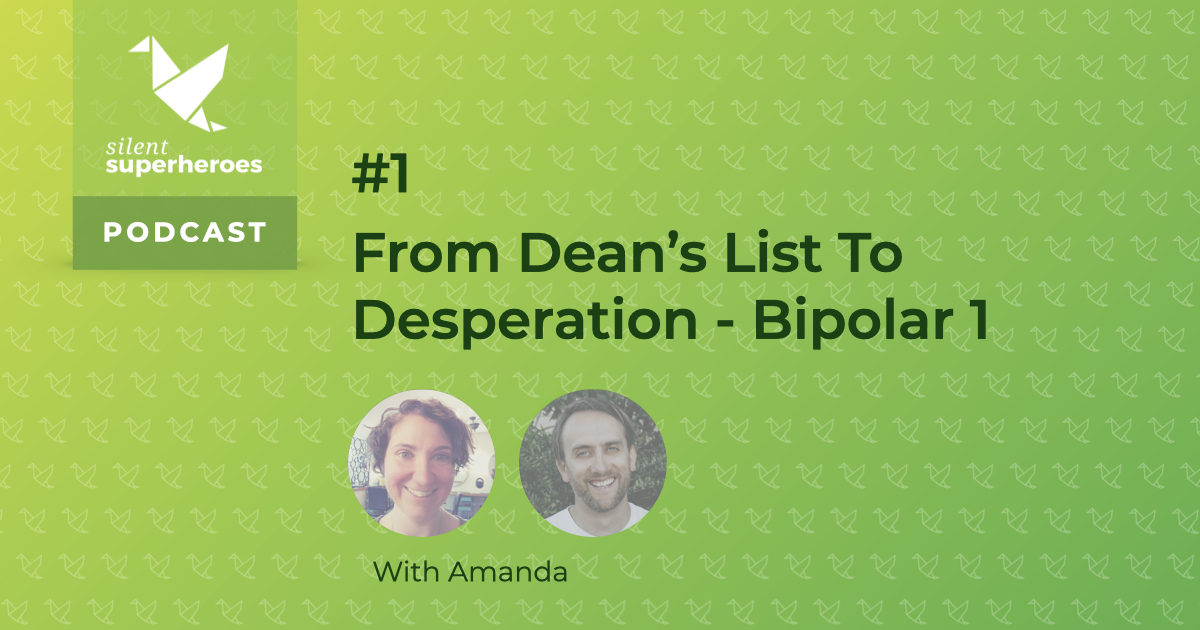Meet Amanda, a mom working as a pharmacy technician while managing bipolar type 1. In this episode of Silent Superheroes, Amanda relives some of her experiences with undiagnosed bipolar disorder. Those experiences include making dean’s list during a manic semester and considering suicide while the rest of New York celebrated winning the Super Bowl. A hospitalization put Amanda on the road to recovery. Despite knowing her bipolar type 1 intimately and having a plan to manage it, the structure of her work makes maintaining her mental health difficult.
Listen To Episode 1
Podcast: Play in new window | Download (Duration: 49:41 — 32.5MB)
Links
- Amanda’s non-profit Seattle T2P2 – https://www.seattlet2p2.org/</a
About Bipolar
Bipolar disorder is a mental health condition that causes extreme mood swings. Those mood swings include emotional highs called mania or hypomania, and lows called depression. Bipolar disorder used to be called manic depression.
When depressed bipolar patients may feel sad or hopeless and lose interest in most activities. Then, when a patients mood shifts to mania or the less extreme hypomania, patients may feel euphoric, full of energy or unusually irritable. These mood swings can affect sleep, energy, activity, judgment, behavior and the ability to think clearly.
Episodes of mood swings may occur rarely or multiple times a year. While most patients will experience some emotional symptoms between episodes, some may not experience any.Although bipolar disorder is a lifelong condition, patients manage mood swings and other symptoms by following a treatment plan. In most cases, bipolar disorder is treated with medications and psychological counseling.
Getting Help
Remember, the people you hear on Silent Superheroes are sharing their opinions about mental health and mental illness. They are not giving advice. For that reason, please consult with your care provider before making a change to your treatment approach.
It’s important to take your mental health seriously. Consequently, if you need to speak to someone you can call 1-800-273-8255, or text crisistextline.org on 741741. Both provide 24×7 confidential counseling to people in the United States. Worldwide visit http://iasp.info/resources/Crisis_Centres/
Because you listened to the podcast, you can help others find it by leaving us a review on iTunes. Or if you don’t use iTunes, leave a review on your favorite podcasting service.


